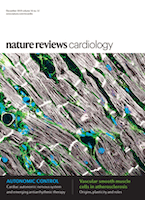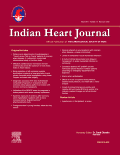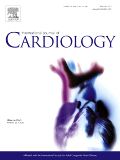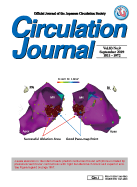
American Journal of Preventive Cardiology
metrics 2024
Empowering Global Collaboration for Cardiovascular Wellness.
Introduction
American Journal of Preventive Cardiology, published by ELSEVIER, is a premier Open Access journal that has been making significant strides in the field of cardiology since its inception in 2020. With an impressive impact factor and recognized as a Q1 journal in the Cardiology and Cardiovascular Medicine category as of 2023, it ranks 77th out of 387 in the Scopus database, placing it in the 80th percentile of its field. The journal aims to promote the latest research and practices in preventive cardiology, addressing the global burden of cardiovascular diseases through a combination of innovative findings and practical applications. With the advantage of Open Access, all published articles are readily available to researchers, professionals, and students worldwide, fostering a broad dissemination of knowledge and encouraging collaboration across disciplines. Based in Amsterdam, Netherlands, the journal is committed to advancing the science and prevention of heart disease, making it an essential resource for those dedicated to improving cardiovascular health.
Metrics 2024
 1.61
1.61 4.30
4.30 4.50
4.50 16
16Metrics History
Rank 2024
Scopus
IF (Web Of Science)
JCI (Web Of Science)
Quartile History
Similar Journals

Cardiology Research
Exploring the forefront of cardiovascular medicine.Cardiology Research is a prominent open-access journal dedicated to advancing the field of cardiology and cardiovascular medicine, published by ELMER PRESS INC. Renowned for its rigorous peer-review process, the journal provides a platform for cutting-edge research and innovative clinical practices in cardiology. With an ISSN of 1923-2829 and an E-ISSN of 1923-2837, it has established an impactful presence in the academic community, achieving a 2023 Scopus quartile ranking of Q3 in its category, positioning it in the 41st percentile. The journal's scope encompasses various aspects of cardiology research, including but not limited to epidemiology, diagnostics, therapeutics, and cardiovascular interventions. Although it operates without open access in certain contexts, it provides flexible access options for readers, ensuring that its valuable insights are widely disseminated. Cardiology Research is an essential resource for researchers, healthcare professionals, and students who aspire to stay at the forefront of cardiovascular science, contributing significantly to the global discourse on heart health.

Nature Reviews Cardiology
Pioneering Excellence in Cardiac Research and Clinical PracticeNature Reviews Cardiology, published by NATURE PORTFOLIO, stands as a premier academic journal in the field of cardiology and cardiovascular medicine, boasting an impressive impact factor and a distinguished ranking of #1 out of 387 in Scopus. Since its inception in 2009, this exemplary journal has continuously delivered cutting-edge reviews and insights, supporting researchers, healthcare professionals, and students in navigating the complex landscape of cardiovascular health. With a commitment to providing open access and disseminating rigorous research, Nature Reviews Cardiology captures the forefront of innovation and scholarship, critical for facilitating advancements in cardiovascular science and clinical practice. Situated in the United Kingdom and with a vibrant global readership, this journal perpetuates academic excellence, ensuring accessibility to the latest findings that shape prevention, diagnosis, and treatment strategies in cardiology through to 2024 and beyond.

Indian Heart Journal
Fostering Global Collaboration in CardiologyIndian Heart Journal, published by Elsevier, is a distinguished peer-reviewed journal dedicated to the field of cardiology and cardiovascular medicine. Founded in 1961, this journal has been a pivotal resource for researchers, healthcare professionals, and students, providing a platform for innovative studies and insights into heart health. The journal transitioned to an Open Access model in 2013, ensuring widespread dissemination of vital research findings to enhance global understanding of cardiovascular diseases. Ranked in the Q3 category for Cardiology and Cardiovascular Medicine in 2023, it holds a reputable position in the medical community, with a Scopus rank of #222 out of 387 journals in the same field, placing it in the 42nd percentile. The Indian Heart Journal strives to foster advances in clinical practice and research while addressing the unique cardiac health challenges faced in India and beyond.

Pakistan Heart Journal
Exploring the Frontiers of Heart Health Research.Pakistan Heart Journal, with the ISSN 0048-2706 and E-ISSN 2227-9199, is a premier publication by the Pakistan Cardiac Society, dedicated to advancing the field of cardiology and cardiovascular medicine. Established as an Open Access journal since 2011, it provides a valuable platform for researchers and clinicians to disseminate innovative findings and insights within this critical area of health. Based in Karachi, Pakistan, at the National Institute of Cardiovascular Diseases, this journal aims to foster an enriched understanding of cardiovascular health by publishing rigorous research, case studies, and review articles. Despite its current categorization as Q4 in the latest 2023 quartiles and a rank of 357/387 in the Scopus database, it plays a vital role in the academic community, encouraging collaborative efforts and dialogue among professionals. The journal aspires to converge diverse perspectives and innovations in cardiology from 2019 to 2024, thereby enhancing the quality and scope of cardiovascular research in the region and beyond.

HEART
Empowering Cardiovascular Excellence Through ResearchHEART is a leading peer-reviewed journal published by the BMJ Publishing Group, specializing in the field of Cardiology and Cardiovascular Medicine. Established in 1942, the journal has evolved as a premier platform for disseminating high-quality research, innovative practices, and clinical advancements within the cardiovascular domain. With an impressive impact factor and ranked in the Q1 category in 2023, it positions itself among the top-tier journals in its field, boasting a Scopus rank of #37 out of 387 in this highly competitive area, representing the top 10th percentile nationally. The journal supports both traditional and open access options, thereby enhancing the global visibility and reach of its published work. Researchers, professionals, and students alike will find HEART to be an invaluable resource, offering the latest insights and developments that drive the field forward and improve patient care worldwide.

International Journal of Cardiology
Exploring New Frontiers in Heart Disease UnderstandingThe International Journal of Cardiology is a premier publication in the field of Cardiology and Cardiovascular Medicine, published by Elsevier Ireland Ltd. With an impressive impact factor and ranked in the top quartile (Q1) of its category, this journal serves as a vital resource for researchers, clinicians, and scholars committed to advancing cardiovascular health. Founded in 1981, the journal has been pivotal in disseminating significant findings, with a wide-ranging scope that includes original research, reviews, and clinical studies aimed at improving patient outcomes and understanding heart diseases. Its robust ranking of #73 out of 387 in Scopus ensures that it remains a leading platform for impactful cardiovascular research. While currently not an open-access publication, the journal's commitment to quality and relevance makes it an essential reference point within an ever-evolving medical landscape. For those engaged in cardiovascular research, the International Journal of Cardiology is not just a journal; it's an indispensable source of knowledge shaping the future of heart health.

CIRCULATION JOURNAL
Advancing Cardiovascular Knowledge, One Study at a Time.CIRCULATION JOURNAL, published by the Japanese Circulation Society, stands as a premier platform for cutting-edge research in the fields of Cardiology and Cardiovascular Medicine. With an impressive impact factor placing it in the Q1 quartile for both cardiology and general medicine, this journal is essential for researchers and practitioners seeking to stay at the forefront of cardiovascular science. The journal's accessible open access options ensure that groundbreaking studies are widely disseminated, reflecting its commitment to advancing medical knowledge and improving patient care. Since its inception in 1996, CIRCULATION JOURNAL has fostered a global dialogue on vital cardiovascular issues, making it a vital resource for academics, healthcare professionals, and students alike. With its base in Tokyo, Japan, the journal not only highlights regional advancements but also contributes significantly to the global medical community.

Journal of the American Heart Association
Leading the Charge in Cardiovascular Knowledge and CareThe Journal of the American Heart Association, published by WILEY, serves as a premier platform for advancing cardiovascular medicine through its commitment to open access, fostering global dissemination of cutting-edge research since 2012. It proudly holds a prestigious position within the top quartile (Q1) in the categories of Cardiology and Cardiovascular Medicine, as evidenced by its Scopus ranking of #49 out of 387 journals, placing it in the 87th percentile. With a focus on innovative studies and transformative findings, this journal is essential for cardiologists, researchers, and healthcare professionals seeking to stay at the forefront of cardiovascular knowledge. The journal aims to bridge the gap between basic science and clinical practice, presenting findings that shape the future of heart health treatment and prevention. As a resource for academic and clinical communities alike, the Journal of the American Heart Association is dedicated to enhancing the understanding and treatment of cardiovascular diseases globally.

Current Cardiology Reports
Advancing cardiovascular knowledge for a healthier tomorrow.Current Cardiology Reports, published by Springer, is a leading peer-reviewed journal dedicated to advancing the field of cardiology and cardiovascular medicine. With its ISSN 1523-3782 and E-ISSN 1534-3170, the journal offers a platform for researchers and practitioners to share innovative research findings, clinical insights, and comprehensive reviews, contributing to the ongoing dialogue in cardiovascular health. Recognized for its high impact, Current Cardiology Reports holds a prestigious Q1 ranking in the Cardiology category for 2023 and ranks #83 out of 387 in Scopus, placing it in the 78th percentile among journals in its field. The journal, converging its insights from 1999 to 2024, aims to disseminate valuable knowledge that can inform clinical practice and influence future research directions. Although not an Open Access journal, the rich content and timely articles published within its pages are invaluable to both seasoned professionals and emerging scholars in cardiology. Based in New York, United States, the journal continues to play a critical role in shaping cardiovascular medicine through rigorous scientific inquiry and education.

Research in Cardiovascular Medicine
Fostering collaboration for breakthroughs in cardiovascular medicine.Research in Cardiovascular Medicine is a renowned open-access journal published by Wolters Kluwer Medknow Publications, dedicated to advancing knowledge in the swiftly evolving field of cardiovascular health. With an ISSN of 2251-9572 and E-ISSN of 2251-9580, this journal serves as a vital platform for researchers and professionals to share their findings, explore innovative treatments, and discuss current trends in cardiovascular care. Since transitioning to open access in 2013, it has democratized access to high-quality research, ensuring that vital information reaches healthcare practitioners and academia alike. The journal’s commitment to rigorous peer review and its emphasis on cutting-edge research contribute significantly to improving patient outcomes and addressing the global burden of cardiovascular diseases. By publishing original articles, review papers, and clinical studies, Research in Cardiovascular Medicine plays a crucial role in shaping the future of cardiovascular research and education, appealing to a wide audience of researchers, professionals, and students striving to make meaningful contributions to this critical field.